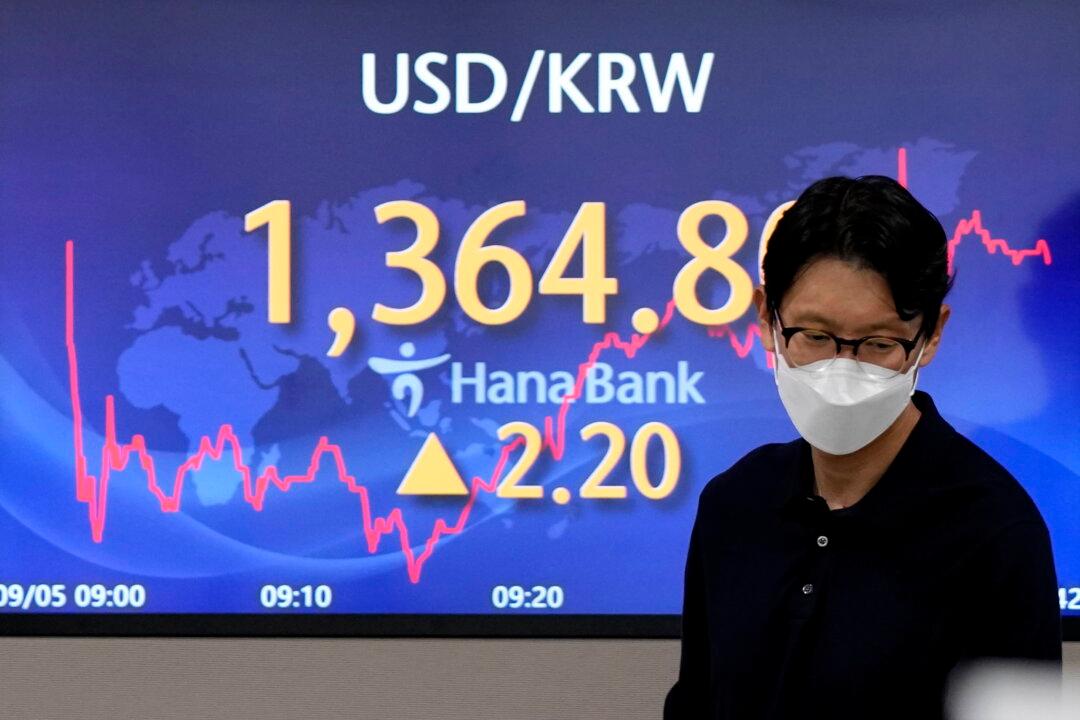BEIJING—Global stock markets sank Monday as Europe faced a new squeeze on Russian gas supplies.

A currency trader walks by the screen showing the foreign exchange rate between U.S. dollar and South Korean won at a foreign exchange dealing room in Seoul, South Korea, on Sept. 5, 2022. Lee Jin-man/AP Photo
|Updated:




